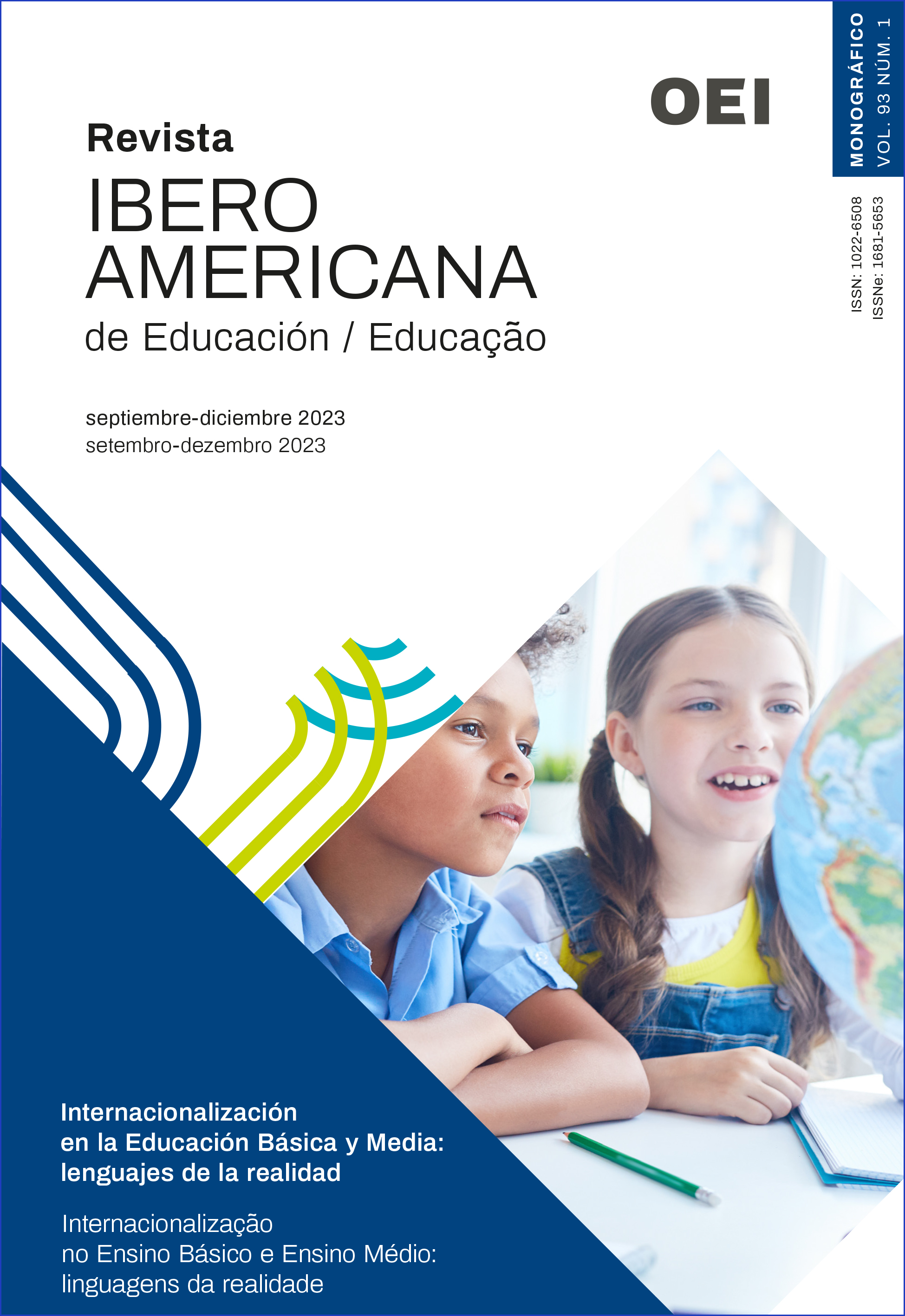Internationalization in Basic Education: languages of reality
Presentation
DOI:
https://doi.org/10.35362/rie9316038Keywords:
bilingualism, interculturalism, internationalisation of the curriculum, basic education, education policyAbstract
The presence of internationalisation practices in primary schools has been quietly taking shape on the national, Ibero-American and international stage, but the lack of records of actions that characterise them as internationalisation is still a gap in their understanding. It is from silent internationalisation practices that we can see the potential for building knowledge while respecting the interculturality that permeates the educational space. In this sense, these practices need to be recognised and understood as internationalisation processes, with a view to discussing and reflecting on how they can contribute to improvements in the educational system from an Ibero-American perspective.
Downloads
References
De Wit, H. (2017). Misconceptions about (the end of) internationalization, challenges and opportunities for the future Revista Educación Superior y Sociedad, 21(21), 65-78. https://www.iesalc.unesco.org/ess/index.php/ess3/article/view/27.
Hudzik, J. (2008). Comprehensive internationalization. Taylor & Francis.
Knight, J. (2012). Student Mobility and Internationalization: Trends and Tribulations. Research in Comparative and International Education, 7(1), 20-33. https://doi.org/10.2304/rcie.2012.7.1.20 DOI: https://doi.org/10.2304/rcie.2012.7.1.20
Knight, J. (2020). Internacionalização da educação superior: conceitos, tendências e desafios (2 ed). OIKOS.
Walsh, C. (2006). Interculturalidad y colonialidad del poder. Un pensamiento y posicionamiento otro desde la diferencia colonial. In C. Walsh, A. García Linera & W. Mignolo. Interculturalidad, descolonización del estado y del conocimiento (pp. 21-70). Ediciones del Signo.
How to Cite
Published
Issue
Section
License
Any authors who publish with this journal accept the following terms:
















